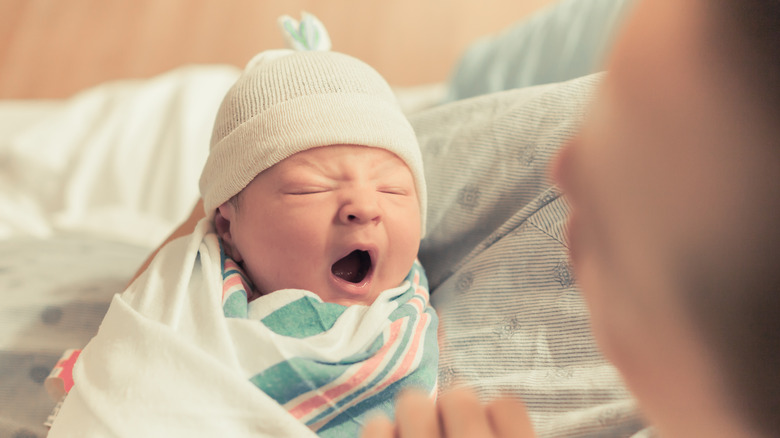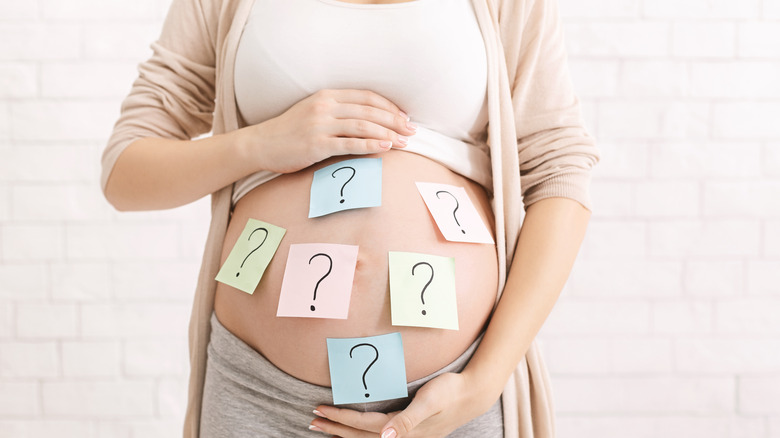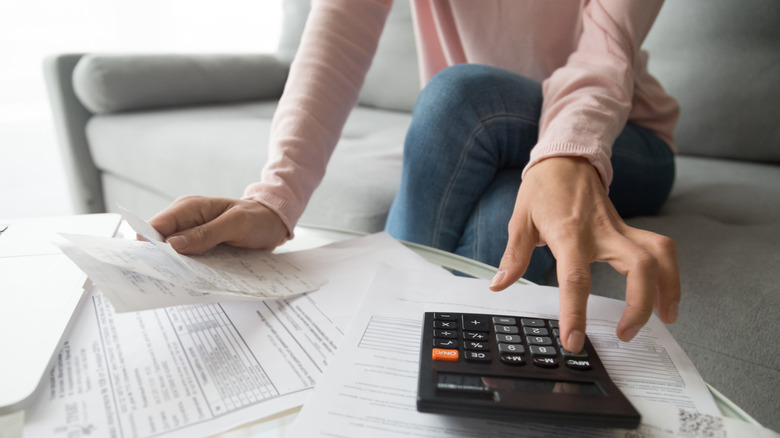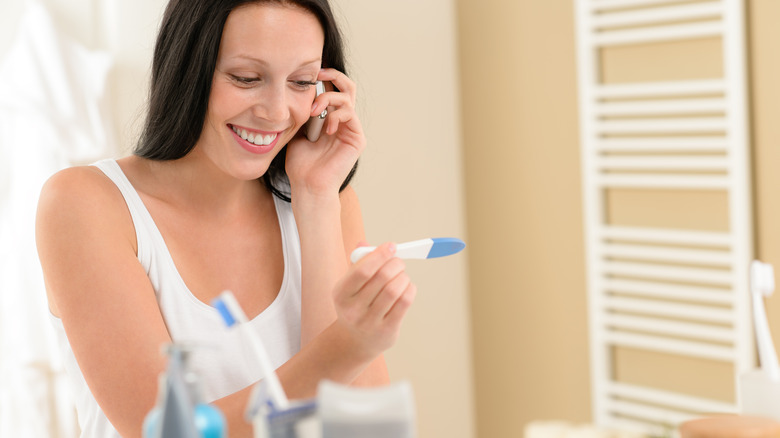Science Says This Is The Best Age To Have A Baby
It's easily the biggest decision of your life — whether or not to have a baby.
And once that decision is made, following closely in second place is the question of when. When is the best time to become pregnant with your first child? If you've reached a certain age, no doubt your mother has something to say about this. ("Hurry up! I want to be a Grandma!") You may be getting advice from friends. You may be discussing it with your partner. Now, even though you didn't ask them, scientists have something to say about when you should become pregnant.
Of course, making the decision is not simple. Your mom may base her opinion on emotion, while science may be focused purely on biology, but so much more goes into the timing of pregnancy, including, but not limited to, your age, your partner's age, your support system (if you don't have a partner), your finances, your career, and even the state of the world.
Honestly, though, science may play a larger role than, say, your mom or friends in your ultimate decision, because you do want to have a healthy baby, and you want to recover quickly and fully. So read on for what research has uncovered about female fertility, but be sure to consider this in addition to all of the other factors that are important to your decision.
And the winning age is...
Well, it's more of a range.
If biology had its say, women would be reproducing early and often. The average age that a girl gets her first period is 12 to 13 years old, which means she is ovulating and technically can become pregnant, according to the American College of Obstetricians and Gynecologists (ACOG). That means, a girl is super fertile in her teenage years, per Women's Health.
Overall, a woman's peak reproductive years, in terms of fertility, are between the late teens and late 20s, per ACOG. By 30, fertility starts to decline and that decline becomes more rapid in the mid-30s. This has to do with the number of eggs a woman has, as well as the quality of those eggs. Females are born with all the eggs they will ever have, which is between one and two million (per Healthline). Over time, that number decreases, as eggs are used for ovulation or discarded. At 37, a woman might have only 25,000 eggs left. And not only has their number dwindled, but so has their quality.
In terms of the greatest health outcome, the ideal age to become pregnant, at least according to one study, is 30.5 years old. But if you'd like more of a range, experts say the best time to get pregnant is between your late 20s and early 30s. This is when the outcome for both you and your baby is optimal, per Healthline.
It's not just about the mother's age
While a teenage girl is highly fertile, becoming pregnant at 15 or so is probably not the best scenario. And that's because much more than age and biology matters when it comes to the timing of a pregnancy.
Consider, for example, how important finances are. You may not want to conceive when you still have college debt or you're at a point in your career where you're not earning much. According to Financial Samurai, there are three essential financial goals to reach before having a baby: a target net worth ($233,000 – $500,000), a career milestone target (three promotions), and an income target ($88,000 – $250,000 per year). The Samurai estimates that potential parents can reach these goals between 30 and 35 years of age, with the optimal age for pregnancy at 32.
Another factor to consider is the age of the father. The idea of a female biological clock is widely accepted, but men are believed to be able to father a healthy child into old age. However, this isn't necessarily true. Men's reproductive capacity declines with age as well — one study showed after 40 — although the decline is more gradual compared to women. Not only does testosterone decrease, but the quantity and genetic quality of sperm does as well. Older fathers may have more difficulty impregnating a woman, and if they do, the pregnancy is more likely to result in miscarriage or health problems for the baby, according to the Washington Post.
What's the best age for you?
Biologically, the best age to conceive may be 32, but that may not be the perfect age for you. There's much to consider, including the finite nature of female fertility. A study published in the journal Human Reproduction, found that women in their late 30s are about 50% less likely to get pregnant during the most fertile days of their cycle than women in their early 20s, according to Women's Health. That's a tough statistic to face if you're holding off on pregnancy for any reason.
Moreover, women who do become pregnant over the age of 35 have a higher chance of stillbirth, as well as having a child with chromosomal abnormalities. Other risks for pregnant women over 35 include high blood pressure, preeclampsia, and premature birth (per Healthline).
Deciding when to conceive is personal, and the best age differs for every woman. But if you've decided that you'd like to have a child someday, it's a good idea to get some info while you're in your 20s, Mindy Christianson, M.D., assistant professor of Gynecology and Obstetrics at the Johns Hopkins University School of Medicine, told Healthline. Your OBGYN can conduct a test to determine your ovarian reserve (how many eggs you have left). Depending on that number, you may decide to conceive earlier than planned, or you may feel comfortable waiting.
For some women, conceiving may be more difficult as they age, but that's not to say it's impossible. Many couples have normal, healthy pregnancies later in life. The most important thing? Starting the process when the time is right for you.



